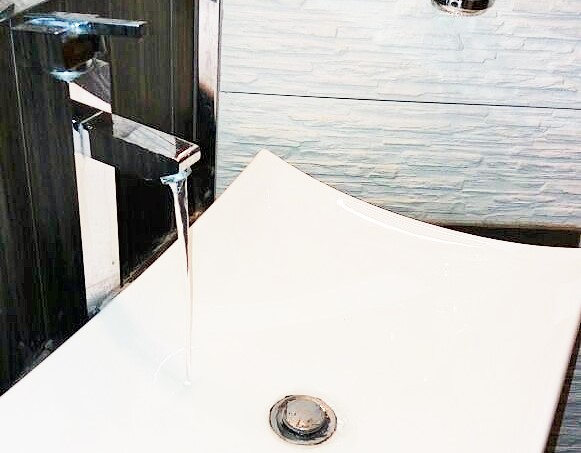Easy-to-Follow Tips for Rectifying Low Water Pressure in Your Home
Easy-to-Follow Tips for Rectifying Low Water Pressure in Your Home
Blog Article
This post down the page in relation to 9 Reasons for Low Water Pressure in Your House is incredibly intriguing. You should read it.

Low water pressure in your home can be a discouraging problem, affecting every little thing from bathing to cleaning recipes. If you're experiencing weak water flow, there are numerous feasible reasons and options to explore. In this guide, we'll go over typical factors for low water pressure and functional actions to attend to the issue properly.
Intro to Low Tide Stress
Low water stress occurs when the circulation of water from your taps, showers, and other fixtures is weaker than common. This can make day-to-day jobs extra tough and much less effective. Understanding the reasons for low water pressure is vital to discovering the best option.
Usual Sources Of Low Water Pressure
Faulty Stress Regulators
Pressure regulatory authorities are accountable for preserving constant water pressure in your house. If they malfunction, it can lead to low tide stress or uneven flow throughout your home.
Local Water Issues
In some cases, the issue lies outside your home. Community water concerns, such as main line leakages or maintenance job, can temporarily reduce water stress in your area.
Pipe Obstructions
Gradually, pipelines can end up being obstructed with natural resource, sediment, or debris, restricting the circulation of water. This is an usual concern in older homes with galvanized steel pipelines.
Deterioration
Rust within pipes can result in leaks and reduced water stress. Corrosion build-up can constrict water circulation, especially in aging plumbing systems.
Just How to Detect Low Tide Pressure
Examining Pipes
Examine visible pipelines for indicators of leakages, corrosion, or obstructions. Focus on any kind of unusual audios, such as banging or rattling pipelines, which can suggest issues within the plumbing system.
Consulting with a Plumber
If you're incapable to identify the cause of low water stress, consider employing an expert plumber to carry out a thorough examination. They can recognize underlying problems and recommend proper remedies.
Inspecting Faucets and Fixtures
Start by checking the water pressure at different faucets and components throughout your home. If the problem is isolated to details locations, it may indicate localized troubles.
Do It Yourself Solutions to Deal With Low Tide Stress
Flushing Hot Water Heater
Debris accumulation in the water heater can restrict circulation and minimize performance. Purging the tank regularly helps eliminate debris and preserve optimal performance.
Examining Stress Regulator
Make sure that the stress regulator is working appropriately. Changing or replacing the regulator can aid restore proper water pressure throughout your home.
Cleaning Up Aerators and Showerheads
Natural resources can accumulate in aerators and showerheads, decreasing water circulation. Remove and clean up these parts routinely to boost water pressure.
Clearing Up Clogs in Pipeline
For small blockages, try making use of a plumbing serpent or chemical drain cleaner to clear obstructions in pipes. Be cautious when making use of chemicals and comply with security guidelines.
When to Call a Specialist Plumber
If do it yourself initiatives stop working to fix the concern or if you think significant plumbing troubles, it's ideal to look for assistance from a certified plumber. They have the competence and tools to address intricate problems safely and efficiently.
Preventive Measures to Keep Water Stress
Installing a Pressure Booster
Take into consideration setting up a stress booster pump to enhance water pressure in locations with continually reduced flow. This can be specifically valuable for multi-story homes or homes with high-demand fixtures.
Surveillance Water Usage
Bear in mind water use routines and stay clear of ill-using the plumbing system. Easy modifications, such as incredible showers and washing loads, can assist preserve adequate water stress.
Regular Upkeep
Arrange regular maintenance for your plumbing system to prevent issues such as deterioration, leaks, and clogs. Attending to small issues early can aid prevent even more substantial repair work later on.
Final thought
Dealing with low tide stress can be irritating, however identifying the underlying causes and carrying out ideal remedies can recover ideal circulation throughout your home. Whether it's cleaning aerators, checking pipelines, or seeking advice from a plumber, taking proactive steps can guarantee a steady supply of water for your everyday needs.
FOUR WAYS TO FIX LOW WATER PRESSURE NOW
Turning on a shower or faucet only to find the water comes out in a sad, slow drizzle is never a good feeling. How exactly are you supposed to wash a pan or take a quick shower when it takes 10 minutes just to rinse off a little soap? The good news is that when your water pressure is bad, there's always a cause: typically one that can be easily fixed. Here are some of the most common causes of low pressure and what you can do to fix the issue:
DEBRIS AND MINERAL DEPOSIT BUILDUPS
If you notice low water pressure from just one or two of the fixtures in your house, the problem likely has to do with debris buildup. Water is full of minerals and other debris, all of which can accumulate in your pipes and on your fixtures. This can cause a blockage that affects how much water flows through. To fix this, try filling a small plastic bag with white vinegar, and use a rubber band to hang it around your showerhead or faucet. Let the head of the fixture soak for a few hours, and the vinegar should loosen the deposits.
WATER LEAKS
Leaks are another common cause of low water pressure. If water is flowing out of your plumbing through a hole or crack before it can reach your fixture, the pressure coming out of the faucet or showerhead will be lower. A plumbing professional is your best bet for finding and repairing a leak in your water supply pipes.
Leaks are another common cause of low water pressure. If water is flowing out of your plumbing through a hole or crack before it can reach your fixture, the pressure coming out of the faucet or showerhead will be lower. A plumbing professional is your best bet for finding and repairing a leak in your water supply pipes.
A VALVE ISSUE
If you have low water pressure throughout your home, check your main shut-off valve to make sure it's completely open. You may also want to see if there's a pressure-reducing valve installed. If there is, have a plumber help you adjust the settings to get the pressure you're looking for.
OTHERS USING WATER
Believe it or not, your low water pressure could be caused by your neighbors. If you notice low pressure at certain times of day, it may be because you and the people living next to you have similar schedules - when everyone is showering at the same time, the pressure will be lower in every home. Low pressure throughout the neighborhood may also be caused by an issue with your municipal water supply. If that's the case, call the supplier to see if they're working on the issue.
https://www.rotorooter.com/blog/water-leaking/low-water-pressure-fixes/

I came across that blog posting on 10 Reasons for Low Water Pressure in Your House while surfing the web. Sharing is nice. One never knows, you might be helping someone out. I take joy in your readership.
Book Report this page